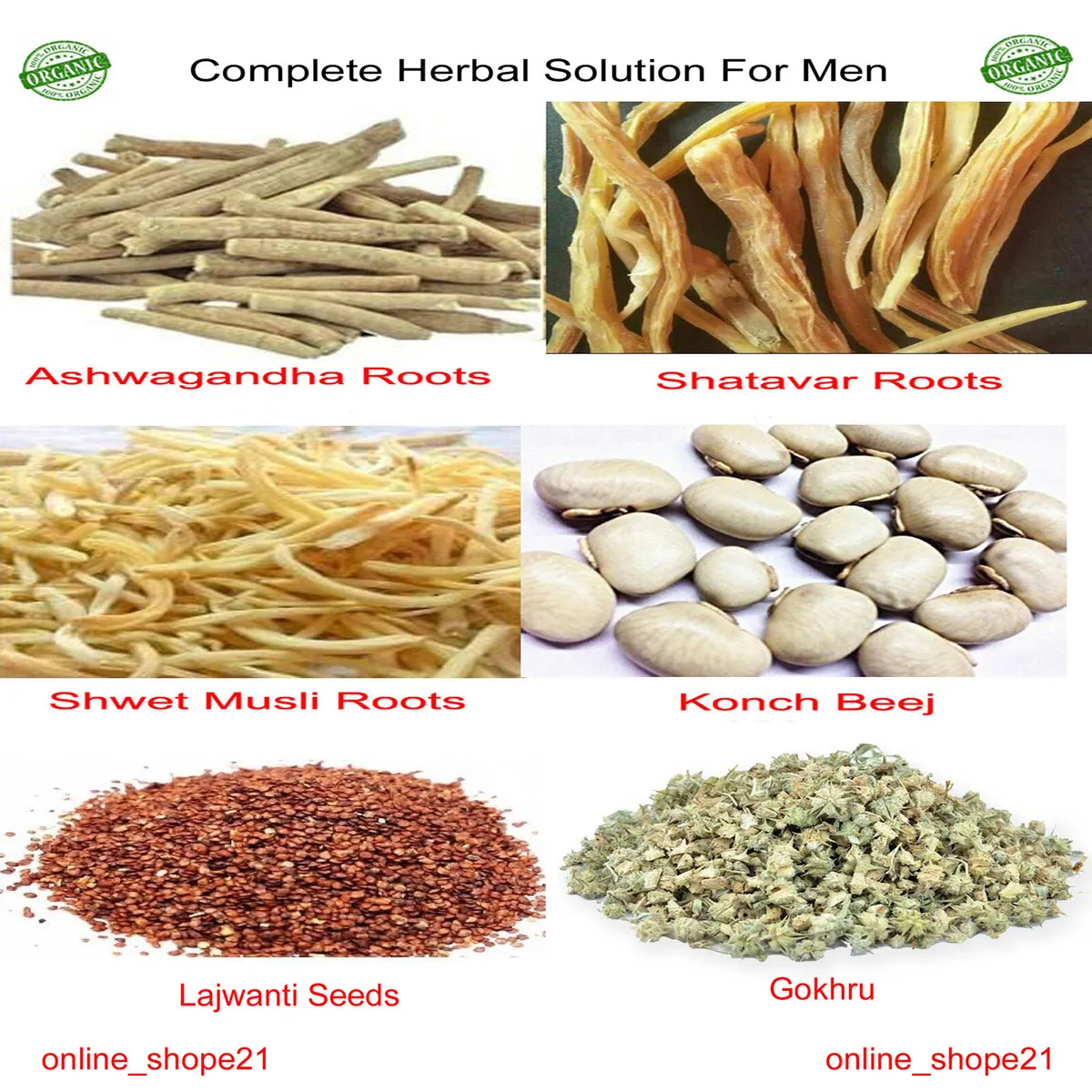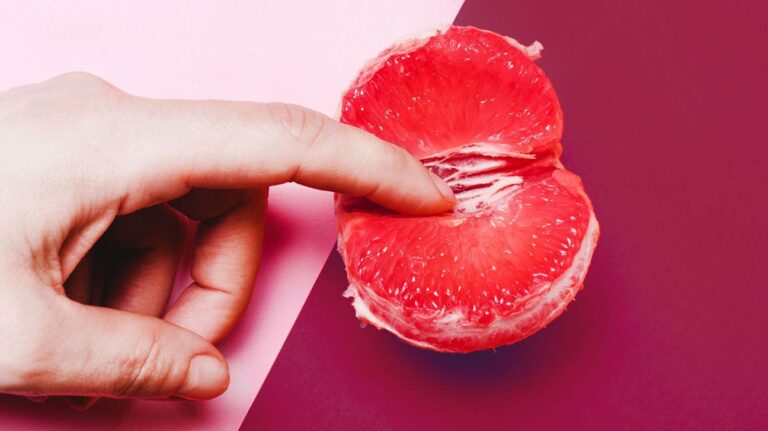Herbs That Help Boost A Low Libido Naturally

Understanding Low Libido and Its Causes

Low libido, also known as a reduced sex drive, is a phenomenon that affects many individuals, regardless of their gender. While it is normal for sexual desire to fluctuate from time to time, persistent low libido can be frustrating and may cause distress in relationships. Understanding the causes of low libido is crucial in addressing this issue effectively.
One primary factor contributing to low libido is stress. When the body is under constant stress, cortisol levels increase, which can suppress the production of sex hormones like testosterone. Additionally, stress can negatively impact mental well-being and self-esteem, both of which play a significant role in sexual desire. It is important to manage stress through various techniques such as exercise, meditation, and seeking professional help, when necessary.
Hormonal imbalance is another potential cause of low libido. Testosterone, the primary male sex hormone, not only regulates sexual desire but also aids in maintaining bone density and muscle mass. When there is a decrease in testosterone levels, it can lead to a reduction in libido. Imbalances in other hormones, such as thyroid hormones or estrogen, can also contribute to low libido. Consulting with a healthcare professional and discussing the possibility of hormone therapy can be beneficial in managing this aspect of low libido.
Identifying the Factors Contributing to Low Libido

Low libido, or a decrease in sexual desire, can be a complex issue with various underlying factors. Identifying these factors is crucial in order to address the root cause and find effective strategies to improve libido.
One common factor contributing to low libido is stress. When we are stressed, our bodies produce higher levels of cortisol, also known as the stress hormone. This can interfere with the production of sex hormones, such as testosterone, leading to a decrease in libido. Additionally, stress can impact our mood, energy levels, and overall well-being, all of which can affect our sexual desire. It is important to recognize and manage stress in order to support a healthy libido.
Another factor that can contribute to low libido is hormonal imbalance. Hormones play a crucial role in regulating sexual desire and function. Imbalances in hormones, such as testosterone, estrogen, and progesterone, can lead to a decrease in libido. This imbalance can be caused by various factors, including age, certain medical conditions, and certain medications. Addressing hormonal imbalances through appropriate medical interventions can help improve libido.
Additionally, nutritional deficiencies can also play a role in low libido. Certain vitamins and minerals, such as zinc, vitamin D, and B vitamins, are essential for maintaining healthy sexual function. Deficiencies in these nutrients can lead to a decrease in libido. It is important to maintain a balanced and nutritious diet to support optimal sexual health.
In conclusion, identifying the factors contributing to low libido is key in finding effective solutions. Understanding the impact of stress, hormonal imbalance, and nutritional deficiencies can help in addressing the root cause of low libido and improving sexual desire.
Exploring the Impact of Stress on Libido

Stress is a common factor that can significantly impact libido, causing a decrease in sexual desire and performance. When the body is under stress, it releases stress hormones like cortisol, which can suppress the production of sex hormones such as testosterone. This hormonal imbalance can lead to a reduced sex drive and may even contribute to erectile dysfunction in men.
Additionally, stress can affect the mind, leading to feelings of anxiety, depression, and fatigue, which can further diminish sexual desire. When the mind is preoccupied with stress and worry, it becomes challenging to fully engage in intimate moments, resulting in a decrease in overall sexual satisfaction.
Studies have shown that chronic stress can have long-term effects on sexual health. Research published in the Journal of Sexual Medicine found that individuals experiencing chronic stress had lower sexual function, decreased sexual desire, and increased sexual dissatisfaction compared to those with lower stress levels.
It is important to recognize the impact of stress on libido and take steps to manage and reduce stress levels. Engaging in stress-reducing activities such as regular exercise, meditation, and relaxation techniques can help alleviate stress and improve sexual well-being. Additionally, seeking professional help from a therapist or counselor can provide valuable tools for coping with stress and enhancing overall sexual health.
The Role of Hormonal Imbalance in Low Libido
Hormones play a crucial role in regulating various bodily functions, including sexual desire and performance. When there is an imbalance in hormone levels, it can lead to a decrease in libido, affecting both men and women. Testosterone, commonly associated with male sexual health, is also important for women in maintaining a healthy libido. Low levels of testosterone in both genders can result in a reduced sex drive and difficulty in achieving sexual satisfaction.
In men, testosterone is mainly produced in the testes, while in women, it is produced in the ovaries and adrenal glands. However, various factors can disrupt the delicate balance of hormones in the body. Age is one such factor, as hormone levels naturally decline with age. For men, this decline usually begins around the age of 30 and can result in a decrease in sexual desire and performance. In some cases, medical conditions such as hypogonadism or certain medications can also contribute to hormonal imbalances and subsequently affect libido. Additionally, chronic stress, poor dietary choices, and sedentary lifestyles can further exacerbate hormonal imbalances and contribute to low libido.
Understanding the role of hormonal imbalance in low libido is essential for finding effective solutions. It is crucial to consult with a healthcare professional, preferably a gynecologist or urologist specializing in sexual health, to determine the underlying cause of hormonal imbalance and develop a tailored treatment plan. Depending on the individual’s needs, hormone replacement therapy may be recommended to restore hormonal balance and improve libido. However, it is important to weigh the potential risks and benefits of such treatment options. Additionally, adopting a healthy lifestyle that includes regular exercise, a balanced diet, stress management techniques, and adequate sleep can help maintain optimal hormone levels and support a healthy libido.
• Hormonal imbalance can lead to a decrease in libido in both men and women.
• Testosterone is important for maintaining a healthy libido in both genders.
• Factors such as age, medical conditions, medications, stress, poor diet, and sedentary lifestyle can disrupt hormone balance and affect libido.
• Consulting with a healthcare professional specializing in sexual health is crucial for determining the underlying cause of hormonal imbalance and developing an effective treatment plan.
• Hormone replacement therapy may be recommended to restore hormonal balance and improve libido.
• The potential risks and benefits of hormone replacement therapy should be carefully considered before starting treatment.
• Adopting a healthy lifestyle that includes regular exercise, balanced diet, stress management techniques, and adequate sleep can help maintain optimal hormone levels and support a healthy libido.
Addressing Nutritional Deficiencies for a Healthy Libido
When it comes to maintaining a healthy libido, addressing nutritional deficiencies is crucial. Nutrients play a vital role in supporting the body’s sexual function and promoting overall sexual well-being. A balanced and nutrient-rich diet can provide the necessary building blocks for hormone production, circulation, and nerve function, all of which are essential for a healthy libido.
One key nutrient that is often linked to sexual health is zinc. Zinc is known to play a crucial role in sperm production and testosterone synthesis, both of which are essential for male sexual function. A deficiency in zinc has been associated with a decline in libido and erectile dysfunction. Good sources of zinc include oysters, beef, poultry, pumpkin seeds, and beans.
Another important nutrient for a healthy libido is vitamin D. Research has shown a positive correlation between vitamin D levels and testosterone levels in men. Low levels of vitamin D have been associated with decreased libido and an increased risk of erectile dysfunction. Sun exposure and fortified foods, such as fatty fish and fortified dairy products, are excellent sources of vitamin D.
In addition to zinc and vitamin D, other vitamins and minerals that are essential for a healthy libido include vitamin C, vitamin E, B vitamins, and magnesium. These nutrients support various aspects of sexual health, such as blood flow, energy production, and nerve function.
Addressing nutritional deficiencies for a healthy libido involves incorporating a variety of nutrient-rich foods into your diet. A balanced diet that includes fruits, vegetables, whole grains, lean proteins, and healthy fats will provide the necessary nutrients for optimal sexual health. Supplementing with a multivitamin or specific nutrients may also be beneficial, especially for individuals with inadequate dietary intake or specific deficiencies.
However, it is important to note that individual nutrient needs can vary, and it is always best to consult with a healthcare professional or a registered dietitian to determine the most appropriate approach for addressing nutritional deficiencies and ensuring a healthy libido.
References:
1. Prasad AS. Zinc: role in immunity, oxidative stress and chronic inflammation. Curr Opin Clin Nutr Metab Care. 2009 Nov;12(6):646-52. doi: 10.1097/MCO.0b013e3283312956. PMID: 19710611.
2. Pilz S, Frisch S, Koertke H, et al. Effect of vitamin D supplementation on testosterone levels in men. Horm Metab Res. 2011 Mar;43(3):223-5. doi: 10.1055/s-0030-1269854. Epub 2010 Dec 10. PMID: 21154195.
3. NHS. Vitamins and minerals – Others. Accessed August 24, 2021. https://www.nhs.uk/conditions/vitamins-and-minerals/others/
Ginseng: A Natural Aphrodisiac for Boosting Libido
Ginseng, a popular herb with a long history in traditional medicine, has been hailed as a natural aphrodisiac that can help boost libido. It is believed to increase sexual desire and improve sexual performance, making it a sought-after remedy for those experiencing low libido.
One of the key reasons why ginseng is considered effective in enhancing libido is its ability to improve blood circulation. By enhancing blood flow to the genital area, it can promote sexual arousal and help individuals achieve and maintain erections. Additionally, ginseng has been found to have adaptogenic properties, which can help reduce stress and anxiety, two common factors that can contribute to low libido.
While some studies have shown promising results regarding ginseng’s potential in boosting libido, more research is needed to establish its effectiveness and determine the appropriate dosage. It is essential to consult with a healthcare professional before incorporating ginseng into your routine, as it may interact with certain medications or have side effects. Nonetheless, the centuries-old use of ginseng as a natural aphrodisiac highlights its potential to address low libido and enhance sexual well-being.
Certainly! Here’s information on Ginseng as a natural aphrodisiac for boosting libido presented in a table format:
| Ginseng: A Natural Aphrodisiac for Boosting Libido | Key Information |
|---|---|
| Overview | – Botanical Name: Panax ginseng (Asian or Korean ginseng), Panax quinquefolius (American ginseng). |
| – Traditional Use: Ginseng has been used in traditional medicine for its potential aphrodisiac properties. | |
| Active Compounds | – Ginsenosides: Biologically active compounds found in ginseng, believed to contribute to its effects. |
| – Adaptogens: Ginseng is classified as an adaptogenic herb, helping the body adapt to stress. | |
| Potential Benefits for Libido | – Enhanced Sexual Function: Some studies suggest ginseng may improve sexual function and arousal. |
| – Testosterone Regulation: Ginseng may have a modulating effect on testosterone levels. | |
| Research Findings | – Clinical Studies: Limited but promising studies have explored ginseng’s impact on sexual function and libido. |
| – Psychological Aspects: Ginseng may positively influence psychological aspects related to sexual desire. | |
| Dosage and Forms | – Dosage: The appropriate dosage can vary; it’s important to follow recommended guidelines or consult a healthcare professional. |
| – Forms: Ginseng is available in various forms, including capsules, extracts, and dried root. | |
| Potential Side Effects and Precautions | – insomnia: Ginseng may cause insomnia in some individuals; taking it earlier in the day is recommended. |
| – Blood Pressure: Those with hypertension should use caution, as ginseng may affect blood pressure. | |
| Interactions with Medications | – Anticoagulants: Ginseng may interact with blood-thinning medications; consult with a healthcare professional if on such medications. |
| – Diabetes Medications: Ginseng may affect blood sugar levels; monitor closely if taking diabetes medications. | |
| Choosing a Quality Product | – Standardization: Choose products standardized for ginsenoside content to ensure consistent potency. |
| – Reputable Brands: Purchase ginseng from reputable brands or sources to ensure quality and authenticity. | |
| Personal Considerations | – Individual Responses: Responses to ginseng can vary; start with lower doses and monitor effects. |
| – Health Conditions: Consult with a healthcare professional, especially if managing specific health conditions. | |
| Holistic Approach to Libido | – Diet and Lifestyle: Ginseng is part of a holistic approach; a balanced diet and healthy lifestyle contribute to overall well-being. |
| – Communication: Open communication with a partner is vital for addressing intimacy concerns. |
Maca Root: Enhancing Sexual Desire and Performance
Maca root, also known as Lepidium meyenii, is a natural remedy that has been used for centuries to enhance sexual desire and performance. This root vegetable, native to the Andes Mountains of Peru, contains a variety of nutrients, including amino acids, vitamins, and minerals, that have been shown to have positive effects on sexual health.
One of the key ways that maca root enhances sexual desire is by balancing hormones in the body. Hormonal imbalances, such as low levels of testosterone or high levels of estrogen, can often contribute to a decrease in libido. However, studies have suggested that maca root can help regulate hormone levels, leading to an increase in sexual desire and performance.
In addition to hormonal balance, maca root is also believed to improve energy and stamina, which can further enhance sexual performance. Research has shown that maca root can increase energy levels, reduce fatigue, and improve endurance, all of which are important factors in maintaining a healthy sex life.
Furthermore, maca root has been found to have aphrodisiac properties, meaning it can increase sexual desire and arousal. Some studies have indicated that maca root may stimulate the production of certain neurotransmitters, such as dopamine and serotonin, which play a role in sexual arousal and pleasure.
While maca root is generally considered safe for consumption, it is important to consult with a healthcare professional before incorporating it into your routine, especially if you have any pre-existing medical conditions or are taking medication. Additionally, it is crucial to ensure that you are sourcing high-quality maca root from reputable sources to maximize its potential benefits.
In conclusion, maca root is a natural remedy that has shown promise in enhancing sexual desire and performance. By balancing hormones, improving energy levels, and potentially acting as an aphrodisiac, maca root may be a valuable addition to a comprehensive approach to addressing low libido. However, further research is still needed to fully understand its mechanisms of action and effectiveness.
The Power of Tribulus Terrestris in Increasing Libido
Tribulus terrestris is a flowering plant that has been used for centuries in traditional medicine for its potential benefits on sexual health. This herb, also known as puncturevine, contains active compounds such as saponins, flavonoids, and alkaloids that are believed to contribute to its libido-enhancing properties.
Various scientific studies have explored the effects of Tribulus terrestris on sexual function. One study conducted on men with low libido found that supplementation with this herb for a period of three months led to significant improvements in sexual desire, erectile function, and overall satisfaction. Another study on women experiencing reduced sexual desire reported similar results, with participants experiencing increased sexual arousal and satisfaction after using Tribulus terrestris extract.
While the exact mechanisms by which Tribulus terrestris works in increasing libido are not fully understood, some research suggests that it may have a positive influence on hormone levels, particularly testosterone. Testosterone is a key hormone involved in sexual function, and low levels of this hormone have been linked to decreased libido in both men and women. Tribulus terrestris may help support healthy testosterone levels, thus promoting sexual desire and performance. However, further research is needed to fully understand the specific mechanisms and optimal dosage for achieving the best results with this herbal supplement.
How Ashwagandha Can Help Improve Sexual Function
Ashwagandha, an ancient herb derived from the Solanaceae family, has gained prominence in recent years for its potential to improve sexual function. With a rich history in traditional Ayurvedic medicine, Ashwagandha has been used to address a range of health issues, including low libido and sexual dysfunction.
Research suggests that Ashwagandha may enhance sexual function by reducing stress levels and improving overall well-being. Chronic stress has been known to negatively impact sexual desire and performance, leading to a decline in libido. Ashwagandha, with its adaptogenic properties, helps the body manage stress and restore hormonal balance, potentially rejuvenating sexual function.
Furthermore, Ashwagandha has been found to have a positive effect on hormones, particularly in balancing cortisol levels, which are closely associated with stress. By modulating cortisol, Ashwagandha may indirectly improve sexual function by reducing the negative impact of stress on the body. Preliminary studies have shown promising results in both men and women, with participants experiencing increased sexual desire, improved satisfaction, and enhanced sexual performance.
While more extensive research is needed to fully understand the mechanisms and efficacy of Ashwagandha in improving sexual function, its long history of traditional use and promising preliminary studies make it a natural remedy worth considering. As with any herbal supplement, it is important to consult with a healthcare professional before incorporating Ashwagandha into your routine, particularly if you have underlying health conditions or are currently taking any medications.
Enhancing Libido with Horny Goat Weed Extract
Horny Goat Weed extract, also known as Epimedium sagittatum, has been used for centuries in traditional Chinese medicine as an herbal remedy for enhancing libido and sexual performance. This natural aphrodisiac is believed to work by increasing blood flow to the genital area, enhancing sexual desire, and improving overall sexual function.
Studies have shown promising results regarding the potential benefits of Horny Goat Weed extract for those experiencing low libido. For example, a 2010 study published in the Journal of Sexual Medicine found that participants who took Horny Goat Weed extract for 16 weeks experienced improvements in sexual desire, as well as overall sexual satisfaction.
While the exact mechanisms of action are still being explored, it is suggested that Horny Goat Weed extract may help boost libido by increasing levels of nitric oxide in the body. Nitric oxide plays a crucial role in relaxing and dilating blood vessels, allowing for improved blood flow to the genitals, which can enhance sexual function.
It is important to note that individual results may vary, and further research is needed to fully understand the potential benefits and risks associated with the use of Horny Goat Weed extract. As with any supplement or alternative treatment, it is recommended to consult with a healthcare professional before incorporating it into your routine, especially if you have any underlying medical conditions or are taking medications that may interact with the herb.
The Benefits of Damiana Leaf for Boosting Libido
Damiana leaf, scientifically known as Turnera Aphrodisiaca, has been recognized for its potential benefits in boosting libido. This natural herb is native to the subtropical regions of the Americas and has been traditionally used as an aphrodisiac and nerve tonic. It is believed to act on the central nervous system, promoting feelings of relaxation and enhancing sexual desire.
The benefits of damiana leaf for boosting libido can be attributed to its composition of active compounds, including flavonoids, volatile oils, and phenolics. These compounds are thought to exert pharmacological effects by enhancing blood flow, stimulating the release of neurotransmitters, and modulating hormonal levels. Additionally, damiana leaf has been associated with reduced anxiety and stress, which can contribute to improved sexual function.
Clinical studies on the effects of damiana leaf on libido are limited. However, some research suggests that this herb may have potential in addressing sexual dysfunction, especially in individuals experiencing low libido. It is important to note that the efficacy of damiana leaf may vary among individuals, and consulting a healthcare professional is recommended before incorporating it into your regimen.
Yohimbine: A Natural Remedy for Low Libido
Yohimbine is a natural remedy that has gained attention for its potential to improve low libido. Derived from the bark of the Pausinystalia yohimbe tree, this herb has been used for centuries in traditional African medicine for its aphrodisiac properties. Yohimbine works by blocking a specific receptor in the body known as alpha-2 adrenergic receptors. By inhibiting these receptors, yohimbine increases blood flow to the genital area and stimulates the release of neurotransmitters involved in sexual arousal.
Several studies have explored the effectiveness of yohimbine in treating low libido, with mixed results. While some research suggests that yohimbine can improve sexual function and increase libido, other studies have found limited or no significant effects. It is important to note that the efficacy of yohimbine may vary among individuals, and further research is needed to establish its optimal dosage and long-term effects.
Before considering yohimbine as a natural remedy for low libido, it is crucial to consult with a healthcare professional. They can help determine if this herb is appropriate for you based on your medical history and any existing health conditions. Additionally, it is important to be aware of potential side effects, which may include increased blood pressure, anxiety, and gastrointestinal disturbances. Understanding the potential benefits and risks of yohimbine will empower individuals to make informed decisions about their sexual health.
The Potential of Muira Puama in Increasing Sexual Desire
Muira Puama, also known as “potency wood,” is a popular herbal remedy that has gained attention for its potential in increasing sexual desire. Derived from the bark and roots of the Ptychopetalum olacoides plant, Muira Puama has been used for centuries in traditional medicine to address various sexual health concerns. Recent studies have explored its potential as a natural aphrodisiac.
One study published in the Journal of Medicinal Food found that a specific formulation of Muira Puama extract significantly improved sexual desire and satisfaction in men with mild to moderate erectile dysfunction. Another study conducted on rodents suggested that Muira Puama may enhance erectile function by improving blood flow to the penis. However, further research is needed to understand the exact mechanisms of action and to determine its effectiveness in humans.
It is important to note that while Muira Puama shows promise as a potential libido-enhancing herb, individual results may vary. Consultation with a healthcare professional is always recommended before starting any new supplements, especially if you have underlying health conditions or are taking medications. Additionally, it’s essential to be aware that herbal supplements are not regulated by the FDA, so it’s important to choose reputable brands and prioritize your safety.
Combining Herbs for Maximum Libido-Boosting Effect
When it comes to boosting libido, combining herbs can be an effective strategy. Many natural herbs have been found to have aphrodisiac properties and can work synergistically to enhance sexual desire and performance. By combining the right herbs, you can maximize their libido-boosting effects and reap the benefits they have to offer.
One popular combination is the mixture of ginseng, maca root, and tribulus terrestris. Ginseng is known for its stimulating properties and has been used for centuries to improve sexual function and stamina. Maca root, on the other hand, is an adaptogenic herb that not only increases libido but also helps balance hormones and reduce stress. Tribulus terrestris is another powerful herb that has been traditionally used to enhance sexual desire and improve erectile function. When these three herbs are combined, they can work together to optimize sexual health and increase libido.
Another effective combination is the use of ashwagandha, horny goat weed extract, and damiana leaf. Ashwagandha is an adaptogen that helps reduce stress and anxiety, both of which can negatively impact libido. Horny goat weed extract, also known as Epimedium, has been used in traditional Chinese medicine for centuries to increase sexual desire and improve erectile function. Damiana leaf is a natural aphrodisiac that enhances sexual stamina and pleasure. By combining these three herbs, you can address both the physical and psychological factors that contribute to low libido, leading to an overall improvement in sexual health.
Combining herbs for maximum libido-boosting effect can be a powerful strategy to enhance sexual desire and performance. However, it is important to note that individual responses may vary, and it is always recommended to consult with a healthcare professional before starting any new supplement regimen. Additionally, it is essential to choose high-quality herbs from reputable sources to ensure their efficacy and safety.
What is low libido?
Low libido refers to a decrease or lack of sexual desire or interest in sexual activity. It can affect both men and women and may be caused by various factors.
What are the potential causes of low libido?
Several factors can contribute to low libido, including stress, hormonal imbalances, nutritional deficiencies, certain medications, lifestyle choices, relationship issues, and underlying health conditions.
How does stress affect libido?
Stress can have a negative impact on libido by increasing cortisol levels, which can disrupt hormonal balance and reduce sexual desire. It can also cause fatigue and mental exhaustion, further affecting libido.
Can hormonal imbalance impact libido?
Yes, hormonal imbalances, such as low testosterone in men or imbalances in estrogen and progesterone levels in women, can lead to a decrease in libido. Maintaining hormonal balance is crucial for a healthy sex drive.
Are there any nutritional deficiencies that can affect libido?
Yes, deficiencies in certain nutrients like zinc, vitamin D, B vitamins, and omega-3 fatty acids can contribute to low libido. Ensuring a balanced diet and addressing any nutritional deficiencies can improve sexual health.
How can ginseng boost libido?
Ginseng is a natural aphrodisiac that can enhance sexual desire and performance. It helps improve blood flow, reduce stress, boost energy levels, and promote overall sexual health.
Can maca root improve sexual desire and performance?
Yes, maca root is known for its ability to enhance sexual desire and improve sexual function. It works by balancing hormones, increasing energy levels, and promoting a positive mood.
What is the role of Tribulus Terrestris in increasing libido?
Tribulus Terrestris is a powerful herb that can increase libido by improving testosterone levels, enhancing sexual performance, and boosting overall sexual health.
How can Ashwagandha help improve sexual function?
Ashwagandha is an adaptogenic herb that can help reduce stress and anxiety, which can negatively impact libido. It also supports hormonal balance and increases energy levels, improving sexual function.
Can Horny Goat Weed extract enhance libido?
Yes, Horny Goat Weed extract is known for its aphrodisiac properties and ability to boost libido. It works by increasing blood flow to the genitals and enhancing sexual desire.
What are the benefits of Damiana Leaf for boosting libido?
Damiana Leaf is a natural aphrodisiac that can increase sexual desire and improve sexual performance. It also helps reduce stress and anxiety, promoting a healthy libido.
Can Yohimbine help with low libido?
Yes, Yohimbine is a natural remedy for low libido that can improve sexual desire and function. It works by increasing blood flow to the genitals and enhancing sexual arousal.
How can Muira Puama increase sexual desire?
Muira Puama is a herbal remedy that can increase sexual desire and improve overall sexual function. It works by enhancing blood flow, boosting energy levels, and reducing sexual fatigue.
Is combining herbs an effective way to boost libido?
Yes, combining herbs that target different aspects of libido can have a synergistic effect, maximizing the libido-boosting benefits. However, it is important to consult with a healthcare professional before combining herbs or starting any new supplement regimen.





